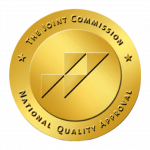Stress is not just a factor in an adult’s life. Teens and young adults are experiencing more and more stress with school, at-home life, extracurriculars, friends, dealing with the post-pandemic world, and preparing for the future. The growth in social media over the years has increased bullying and anxiety among teens and young adults on these platforms. With the increase in stress and mental health issues among young adults, what are the best coping skills for teens experiencing stress?
Young adults between the ages of 15 and 21, known as “Gen Z,” are the generation most likely to report poor mental health. Thus, urging the importance of teaching teens and young adults how to cope with stress. While some stress is normal and even beneficial, when not effectively managed, it can lead to risky decisions.
These decisions can lead to long-term health consequences. Caring parents must educate kids toward healthy coping strategies as they learn to overcome problems.
Mental Health Disorders in Adolescence
A study was done by the CDC to determine the most common mental health disorders among adolescence. The results explained the most common mental health disorder in children and teens between the ages of 3-17 in the years 2016-2019 were ADHD, anxiety problems, behavior problems, and depression. The results explained that the number of children and teens living with these disorders included:
- 9.8% ADHD (approximately 6.0 million)
- 9.4% Anxiety (approximately 5.8 million)
- 8.9% Behavior problems (approximately 5.5 million)
- 4.4% Depression (approximately 2.7 million)
Coping Skills for Teens
The Harm Reduction Center is a private health care facility in South Florida that offers all levels of mental health services and care. We understand how difficult the world can be for children and young adults. This is why we have complied healthy coping skills for teens who are experiencing stress, anxiety, and any other mental barrier.
1. Plan Ahead
We can’t always predict when we’ll face difficulties and challenges. We can, however, plan ahead. The most effective strategy to plan ahead is to first develop a plan. When you begin to feel overwhelmed and the stress begins to build, take a step back and analyze the situation. Understand where the root of your stress is coming from.
Once you understand what is stressing you out, write down ways you can avoid this situation in the future. Break down your problems into smaller and more manageable parts. Stressed about school works or activities? Stay organized and keep a detailed calendar. Rather than getting stressed about last-minute assignments, tackle them ahead of time and check them off your list.
2. Break Down Problems
When you’re stressed, hormones and emotions are at their peak, making it difficult to think properly. It’s difficult for the brain to digest information and make decisions when our minds are going 100 miles per hour. This is not only true for adults but especially true for teenagers, whose brains are still developing. That’s why it’s critical for teenagers to take time to process their emotions and feelings and regain their composure before making moves.
Encourage your teen to focus on one problem at a time. Breaking them down into smaller and more manageable parts rather than overwhelming yourself with everything all at once. Unsure how to break everything down? Ask a family member or friend to help you sift through ideas until you find the best solution.
In other words, the goal is to figure out how to break down seemingly insurmountable challenges into smaller, more manageable chunks.
3. Deal with Your Emotions
Stress can lead to a variety of unpleasant emotions including anxiety, stress, frustration, and nervousness. It is important to express these feelings in a healthy way. This could be through journaling, talking to someone (whether professional or a loved one), creating art or music, yoga or working out, and the list goes on. Finding a way to channel your emotions into something positive will help alleviate some of the stress teens experience on a daily basis.
4. Work on Your Physical Health
A healthy body creates a healthy mind. Staying active and fueling your body with healthy and nutritious food will help keep your mind clear and focused. Exercise is one of the best ways to manage stress. Take time for yourself and your self-care. Teens tend to have busy schedules. Going from school, to sports practice or after-school programs, then back home to study and do homework, etc.
Taking the time to slow down and relax is an important part of de-stressing your mind. Try taking a fun workout class, listening to calming music, reading a good book, or picking up a new hobby.
5. Avoid Stressful Situations
While there are many stressful situations in a teen’s life that can not be avoided, there are others that are not necessary. If there are specific people, places, or situations that are causing you unnecessary discomfort, avoid them. Maybe there is someone you hang out with that is constantly bringing you down. Begin distancing yourself from this person to help your mental health.
It can be hard as a teen to understand that these situations are the very thing causing them stress. Help them understand and figure out why the discomfort is occurring, and how avoiding it will benefit them in the long run. Learning this type of self-awareness at such a young age is empowering. Only setting yourself up for greatness in the future.
Seeking Help
If your teen is struggling with the stressors of life and can’t seem to figure out healthy coping skills, reach out to the Harm Reduction Center. At HARC, we offer services for both mental health and addiction treatment. Our team of professionals is here to help the community with counseling, guidance, and a support system. If you have any questions or need to find help, contact us today.














